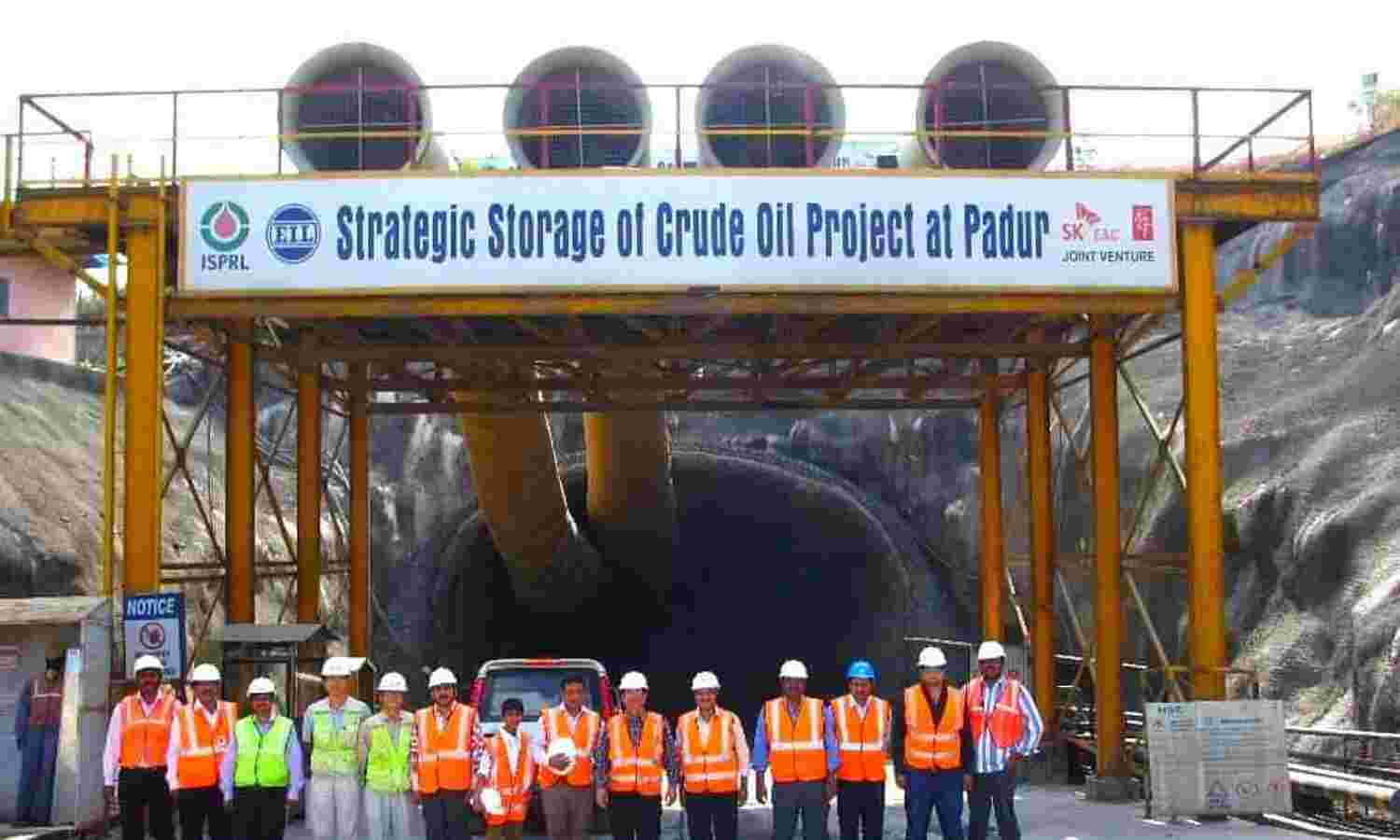India’s quest for energy security has taken a transformative turn with the Government’s decision to lease out underground caverns originally designated for storing hydrocarbons. These caverns, strategically located in Visakhapatnam, Mangalore, and Padur, were initially conceived as emergency reserves to safeguard against supply disruptions or wartime exigencies. However, a recent announcement, reported by PTI, reveals a strategic shift towards commercial utilization of these vital assets. With the global oil market dynamics in flux, India’s adaptation to evolving trends underscores its proactive stance in energy management. By leveraging existing infrastructure and engaging international partners, India aims not only to bolster energy security but also to foster economic growth and resilience. This strategic pivot signals India’s commitment to navigating the complexities of the energy landscape while ensuring sustainable development and stability.
Underground Storage Facilities
The underground storage facilities located in Visakhapatnam, Mangalore, and Padur stand as crucial components of India’s energy security infrastructure. These caverns were meticulously constructed by India Strategic Petroleum Reserve Ltd. with the primary objective of safeguarding the nation’s energy needs during emergencies. The capacity of these facilities amounts to a substantial 5.33 million tonnes of oil, strategically dispersed across the southern Indian cities.
Initially conceived to serve as a buffer against supply disruptions or wartime exigencies, these caverns represent a significant investment in India’s energy resilience. Constructed with cutting-edge engineering techniques, they provide secure and reliable storage for vital hydrocarbon reserves.

Leasing Plans
The recent decision by the Government of India to lease out these underground caverns marks a pivotal shift in strategic planning. This development, as reported by PTI, signifies a departure from the original intent of filling the caverns with crude oil. Instead, the government is poised to issue expressions of interest for leasing out these caverns, opening the door to commercial utilization of the infrastructure.
The decision to defer plans for filling the caverns with crude oil reflects a strategic reassessment in response to evolving global oil market dynamics. Rather than solely serving as emergency reserves, these caverns will be leveraged to meet evolving energy needs while also optimizing existing infrastructure. This shift underscores India’s adaptability and proactive approach to managing its energy resources in a rapidly changing geopolitical landscape.
Adapting to Changing
India’s ability to adapt to shifting global oil market trends is essential for ensuring energy security and resilience. With the energy landscape undergoing constant flux, optimizing existing infrastructure becomes imperative. The decision to lease out underground caverns reflects a strategic pivot towards commercial utilization, aligning with India’s broader goals of energy diversification and sustainability.
By embracing commercial opportunities for storage assets, India can maximize the value of its strategic petroleum reserves while also mitigating risks associated with market fluctuations. This shift not only enhances India’s energy security but also contributes to economic growth by unlocking the potential of existing infrastructure.
Also Read: PM Modi Scripting History for Goa
Current Status
The leasing of underground storage facilities has already gained traction, with significant portions already secured by international entities. Notably, the National Oil Company of Abu Dhabi (Adnoc) has secured leasing rights for substantial portions of storage capacity at Padur and Mangalore. However, substantial storage space remains available for leasing, including vacant portions in Visakhapatnam and Mangalore.
LR Jain, the CEO and Managing Director of Indian Strategic Petroleum Reserves Limited (ISPRL), has confirmed the availability of these caverns for leasing. This confirmation underlines the government’s commitment to engaging with international partners while ensuring the prudent utilization of strategic assets.
Ensuring National Energy Security
Amidst the leasing arrangements with international entities, India’s priority access to stored oil during emergency situations remains non-negotiable. This emphasis on retaining priority access underscores the government’s unwavering commitment to national energy security and resilience.
In times of crisis or supply disruptions, India can swiftly access its strategic reserves, thereby safeguarding its energy needs and economic stability. The government’s steadfast commitment to retaining control over strategic reserves underscores its proactive approach to mitigating risks and ensuring uninterrupted energy supply for its citizens.
Strategic Implications
India’s decision to lease out underground storage facilities represents a strategic pivot in its energy management approach. By leveraging existing infrastructure for commercial purposes, India is not only enhancing its energy resilience but also fostering economic growth.
As the world’s third-largest oil importer and consumer, India’s energy security is paramount for sustaining its economic growth trajectory. The shift towards commercial utilization of storage assets aligns with India’s broader goals of diversifying its energy mix and reducing dependency on volatile global oil markets.
Also, this strategic pivot enhances India’s ability to mitigate risks associated with global market fluctuations. By diversifying its energy storage options and engaging with international partners, India is strengthening its resilience against supply disruptions and price volatility, thereby ensuring sustained economic growth and stability.
In conclusion, India’s decision to lease out its underground storage facilities marks a significant milestone in its journey towards energy security and economic resilience. By repurposing these caverns for commercial use, India demonstrates its adaptability to evolving global energy dynamics while maximizing the value of its strategic assets. Moreover, the government’s commitment to retaining priority access during emergencies underscores its unwavering dedication to national energy security. This strategic pivot not only enhances India’s ability to mitigate risks associated with market fluctuations but also aligns with its broader goals of diversifying energy sources and reducing dependency on volatile oil markets. Moving forward, India’s proactive approach to energy management will continue to play a pivotal role in shaping its sustainable economic growth and ensuring a secure energy future.
Also Read: India & UAE have signed a historic pact

























